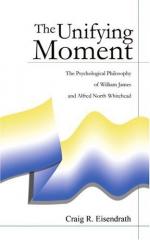|
This section contains 10,667 words (approx. 36 pages at 300 words per page) |

|
SOURCE: “Some Basic Differences between Classical and Process Metaphysics and Their Implications for the Concept of God,” in International Philosophical Quarterly, Vol. XXII, No. 85, March, 1982, pp. 3-20.
In the following essay, Keller analyzes several fundamental areas of disagreement between proponents of classical and process metaphysics—the latter group represented by Whitehead. Considering the opposing natures of primary substance, causation, and value held by these two camps, Keller examines consequent differences in their conceptions of God.
In recent year one topic of sustained attention among philosophers of religion, at least among those with a metaphysical bent, has been the debate between proponents of a classical or Thomistic doctrine of God and proponents of a process doctrine.1 In both cases the doctrine of God is only part of a broader metaphysical tradition, which I term “classical metaphysics” and “process metaphysics” respectively. The former term refers most particularly to Thomistic metaphysics...
|
This section contains 10,667 words (approx. 36 pages at 300 words per page) |

|


